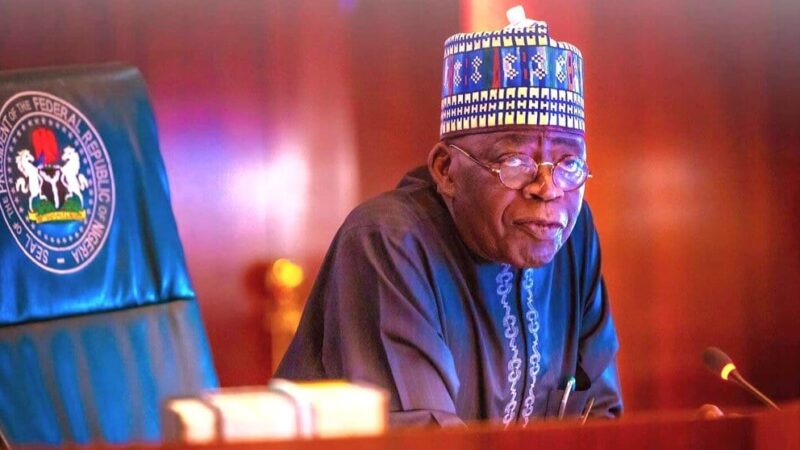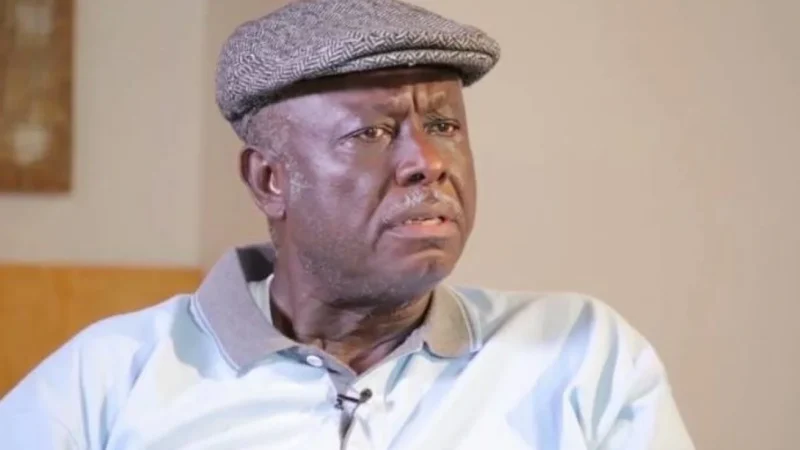Govs, UBEC seek reform of foundational education
 Worried by the deepening education crisis in the country, the Nigeria Governors’ Forum, in partnership with the Universal Basic Education Commission and NewGlobe, has called for urgent, far-reaching reforms to address foundational learning gaps and stem the rising number of out-of-school children.
Worried by the deepening education crisis in the country, the Nigeria Governors’ Forum, in partnership with the Universal Basic Education Commission and NewGlobe, has called for urgent, far-reaching reforms to address foundational learning gaps and stem the rising number of out-of-school children.
The call was made on Thursday during a State-Level Workshop on Foundational Learning and Out-of-School Children, held in Abuja.
Participants, including governors, education experts, and development partners, described the situation as a national emergency that demands immediate, coordinated action across all levels of government.
Nigeria continues to grapple with a persistent out-of-school children crisis.
The NGF pointed out that a significant number of children in primary schools did not possess sufficient foundational literacy, numeracy, and socio-emotional skills required for academic advancement and the development of more complex abilities.
The NGF Chairman and Kwara State Governor, AbdulRahman AbdulRazaq, lamented that millions of children in classrooms were unable to read or solve basic arithmetic, while many others remained out of school altogether.
AbdulRazaq, in a speech read by the NGF Education Advisor, Leo The Great, stated, “Nigeria is faced with a crisis. We are dealing with some out-of-school children.
“However, enrolment in school for most children does not translate into actual learning.
“Across the states, the number of children who are in primary school has insufficient levels of foundational literacy, numeracy, and socio-emotional skills necessary for learning success in other subjects and higher skills for learning.
“Foundational skills are not merely the end goal of an educational system; they are also critical building blocks for achieving other educational objectives, including retention and progression from one level to the next.”
He disclosed that nationwide data indicated a 66 per cent out-of-school rate among primary school-age children in Nigeria, noting that the poor quality of education had led to high dropout rates, as well as low transition and completion levels.
“As critical stakeholders in the education ecosystem, we understand that there is now a focus on the provision of quality education, especially for foundational learning, to enhance the success of globally tested learning methodology and technology,” he said.
As part of the challenges, the governor expressed concern that the education sector’s workforce was both insufficient and undervalued.
He said basic education and the course of national governance in Nigeria were underfunded.
He listed lack of characterisation of the issues of conditional training, absence of appropriate learning materials and independent training and literacy, and lack of familiarity with recent research in the operations of conditional training and digital literacy skills as part of the problems bedevilling the sector.
“Also, weak local capacity and monitoring and evaluation of conditional training disruptions and outcomes, insufficiency of available points, low level of awareness and support from families and communities for conditional training skills, and lack of commitment among state and non-state actors in addressing these challenges are key factors in developing the education sector and in feeding on basic proficiency in numeracy and literacy in Nigeria,” he added.
The NGF emphasised that learner progress was vital within the Nigerian community, stressing the importance of prioritising conditional training in state education systems.
“The Nigerian Governors Forum expects this workshop to strengthen motivation for federal and state policymakers in driving and sustaining evidence-based reforms to improve implementation of foundational learning and reduce the challenges of out-of-school children across the states of the federation.
“It aims at the expectation that this workshop will strengthen collaboration with states and non-state actors in tackling learning poverty and out-of-school children at the sub-national level,” he added.
UBEC Executive Secretary, Aisha Garba, noted that despite ongoing political and systemic barriers, Nigeria’s education system kept battling deep-rooted challenges.
Garba, represented by UBEC Deputy Secretary, Technical, Rasaq Akinyemi, stressed the need for Nigeria to build on existing achievements and ensure inclusive education, affirming that every Nigerian child has the right to quality education.
“Basic education remains a critical concern in our national development. The quality of education in our schools must be improved to ensure that every child can access the learning they deserve.
“Today’s gathering is a response to the urgent crisis we face, a crisis of national significance.
“Millions of Nigerian children are out of school. Many of their parents lack formal education and the necessary skills to lead productive lives.
“These challenges go beyond the pandemic; they reflect deep structural issues that have persisted for decades,” she said.
In response, Garba said the Nigerian government, supported by the World Bank and other partners, initiated multi-million dollar programmes to close learning gaps and enhance basic education efforts at the state level.
“Some states have already reached the stage of implementing community-based programmes (to fix foundational learning gaps). Others are rolling out innovative energy, health, and learning solutions to improve outcomes for schoolchildren.
“We must build on these successes and ensure that no child is left behind. Every Nigerian child deserves access to quality education.
“This event today serves as a platform for policy coordination, peer learning, and institutional dialogue. It is an opportunity for stakeholders to align on strategies that will deliver real, lasting impact,” the UBEC Executive Secretary stated.
She affirmed UBEC’s commitment to support, collaboration, and innovation in education.
NewGlobe’s Vice President for Policy and Partnerships, Ifeyinwa Ugochukwu, acknowledged that while notable progress had been made in expanding access to education across the states, much remained to be done to close the learning gap.
Ugochukwu said assessment in several states revealed that Primary 6 pupils still struggle with foundational literacy and numeracy skills.
“The issue at hand goes beyond out-of-school children. It is actually about whether the children who find their way to classrooms are learning, particularly in our rural communities.
“The unfortunate reality, and we all know this too well, is that in too many of our schools, students are not learning.
“Multiple assessments conducted by the states have also shown that children in Primary 6 struggle with basic literacy and numeracy.
“This means that our education system is not just dealing with an access problem, but with a deep, structural, and alarming learning crisis.
“The truth is, many children are sitting in our classrooms every day, but leaving empty-handed, unable to read, write, or grasp a basic understanding,” she said.
The NewGlobe Vice President described foundational learning as the strongest indicator of a child’s likelihood to complete their education and lead a productive life.
She stated, “If a child can’t read by that age (10), they’re four times more likely to drop out.
“A child who drops out is at high risk of crime, unemployment, exploitation, and intergenerational poverty.”
She urged the adoption of real-time data systems, stressing that by the end of 2025, daily insights into all public schools should be standard.
Ugochukwu said, “With smart schools, solar chargers, and low-data software, even remote schools can report to central dashboards. It’s not about possibility, it’s about priority.
“With real-time data, state leaders can know which teachers are punctual, who need support, and where learning gaps exist. Education management becomes proactive, not reactive.
“Digital usage data can shape training, inform funding, and foster accountability.
“Teachers feel supported, gaps are addressed, and education becomes evidence-based. Even the best tools fail without trained teachers. Reforms only succeed when teachers are empowered daily.”
She concluded, “This is not a marginal concern. It is a system-wide emergency. If we do not act quickly and deliberately, we will be too late for millions of children.”







